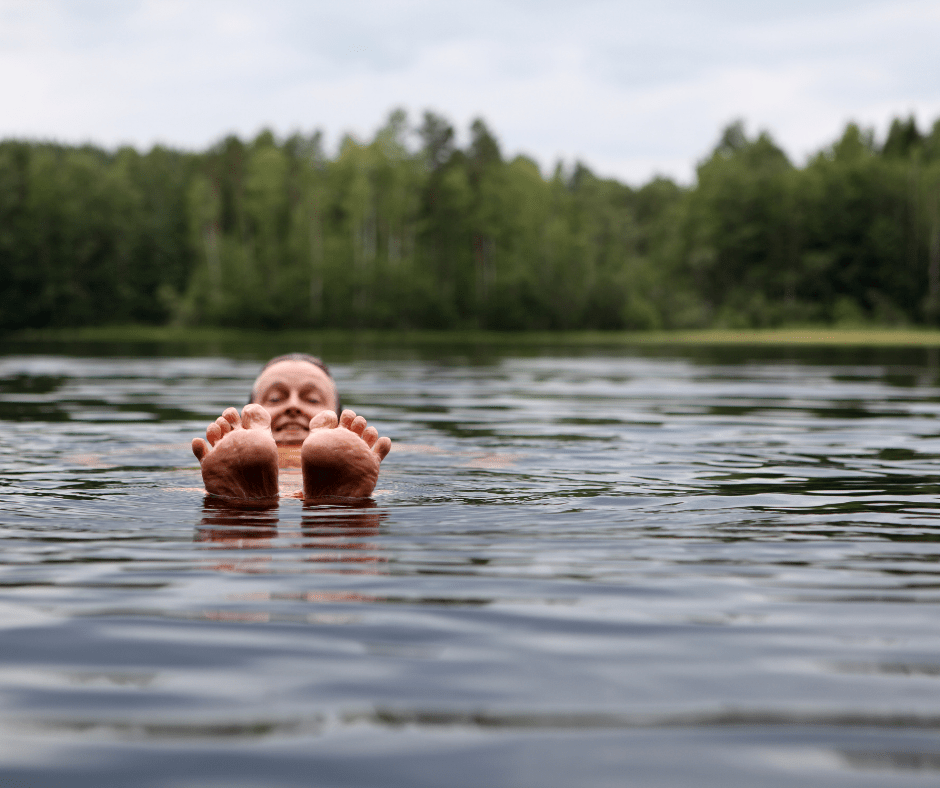Bathing in the lake: It’s okay if I use biodegradable soap, right?

Actually, no.
Many cottagers and lake associations struggle with the issue of people lathering up and jumping in the lake. While many of these offenders try to minimize the environmental impact by using biodegradable soap, water quality degradation can still result.
Even if a soap is biodegradable, it is not safe to put that soap directly into the water. All soap, whether biodegradable or not, affects lake chemistry in a detrimental fashion. It can also have a negative impact on fish and other aquatic organisms.
What does biodegradable actually mean?
A material is considered biodegradable if it is capable of being decomposed by biological agents like bacteria. More specifically, materials are usually deemed biodegradable if they break down to at least 90% water, carbon dioxide and biomass within six months, although some materials may take years to biodegrade.
When you think about it, most products can be considered biodegradable; it’s just a matter of time.
A few things to keep in mind when using biodegradable soaps and cleaners include:
- How quickly the product breaks down – as noted above, some product biodegrade within days while others may take years.
- What conditions are necessary for breakdown to occur – a product that is broken down by bacteria in the soil will not biodegrade in water.
- What by-products are left behind – even the natural elements left behind from biodegradable products are additives which were not previously present in water and can reduce the purity and quality of our water and harm aquatic life.Keep in mind that biodegradability doesn’t necessarily mean environmentally friendly.
Many soaps also contain surfactants, which are often toxic to life in the lake, especially microorganisms and invertebrates.
If you are going to bathe in the great outdoors, instead of using soap to get yourself clean, just use a washcloth and scrub. Water is an excellent solvent that attaches to dirt and mud and washes it away. Soap only helps to suspend the dirt that water attaches to and rinses it away more quickly and easily.
If you must wash with soap out of doors, use one that is biodegradable and phosphate-free and use it sparingly. Do all your washing, bathing or cleaning at least 30 metres from any water sources and dispose of your soapy wash and rinse water in a hole six inches deep to allow bacteria in the soil to completely biodegrade the soap.
For many people, our lakes and rivers are a source of drinking water. Please don’t add anything to the water that you wouldn’t want to drink yourself.
